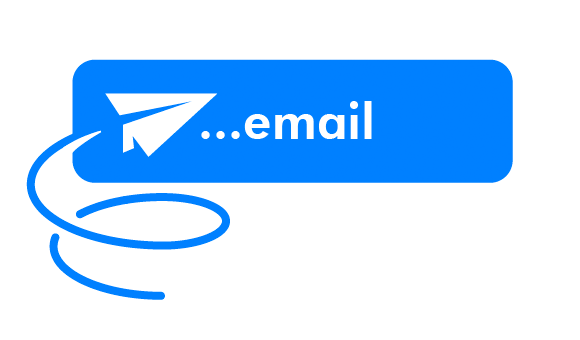- RETIREMENT ANNOUNCEMENT
- HOME PAGE
- "MYCHART" the new patient portal
- BELMONT MEDICAL ASSOCIATES
- MOUNT AUBURN HOSPITAL
- EMERGENCIES
- PRACTICE PHILOSOPHY
- MY RESUME
- TELEMEDICINE CONSULTATION
- CONTACT ME
- LAB RESULTS
- ePRESCRIPTIONS
- eREFERRALS
- RECORD RELEASE
- MEDICAL SCRIBE
- PHYSICIAN ASSISTANT (PA)
- Medicare Annual Wellness Visit
- Case management/Social work
- Quality Care Measures
- Emergency closing notice
- FEEDBACK
- Talking to your doctor
- Choosing..... and losing a doctor
- INDEX A - Z
- ALLERGIC REACTIONS
- Alternative Medicine
- Alzheimer's Disease
- Bladder Problems
- Blood disorders
- Cancer Concerns
- GENETIC TESTING FOR HEREDITARY CANCER
- Chronic Obstructive Pulmonary Disease
- Controversial Concerns
- CPR : Learn and save a life
- CRP : Inflammatory marker
- Diabetes Management
- Dizziness, Vertigo,Tinnitus and Hearing Loss
- EXERCISE
- FEMALE HEALTH
-
GASTROINTESTINAL topics
- Appendicitis
- BRAT diet
- Celiac Disease or Sprue
- Crohn's Disease
- Gastroenterologists for Colon Cancer Screening
- Colonoscopy PREP
- Constipation
- Gluten sensitivity, but not celiac disease
- Heartburn and GERD
- Hemorrhoids and Anal fissure
- Irritable Bowel Syndrome (IBS)
- Inflammatory Bowel Disease
- NASH : Non Alcoholic Steato Hepatitis
- FEET PROBLEMS
- HEART RELATED topics
-
INFECTIOUS DISEASES
- Antibiotic Resistance
- Cat bites >
- Clostridia difficile infection - the "antibiotic associated germ"
- CORONA VIRUS
- Dengue Fever and Chikungunya Fever
- Food borne illnesses
- Shingles Vaccine
- Hepatitis B
- Hepatitis C
- Herpes
- Influenza
- Helicobacter pylori - the "ulcer germ"
- HIV Screening
- Lyme and other tick borne diseases
- Measles
- Meningitis
- MRSA (Staph infection)
- Norovirus
- Sexually Transmitted Diseases
- Shingles (Herpes Zoster)
- Sinusitis
- West Nile Virus
- Whooping Cough (Pertussis)
- Zika virus and pregnancy
- INSURANCE related topics
- KIDNEY STONES
- LEG CRAMPS
- LIBRARY for patients
- LIFE DECISIONS
- MALE HEALTH
- Medication/Drug side effects
- MEDICAL MARIJUANA
- MENTAL HEALTH
- Miscellaneous Articles
-
NUTRITION - EXERCISE - WEIGHT
- Cholesterol : New guidelines for treatment
- Advice to lower your cholesterol
- Cholesterol : Control
- Cholesterol : Raising your HDL Level
- Exercise
- Food : Making Smart Choices
- Food : Making Poor Choices
- Food : Grape Fruit and Drug Interaction
- Food : Vitamins, Minerals and Supplements
- Omega 3 fatty acids
- Vitamin B12 deficiency
- Vitamin D
- Weight Loss
- ORTHOPEDICS
- PAIN
- PATIENTS' RIGHTS
- SKIN
- SLEEP
- SMOKING
- STROKE
- THYROID
- SUBSTANCE ABUSE
- Travel and Vaccination
- TREMOR
- Warfarin Anticoagulation
- OTHER STUFF FOLLOWS
- Fact or Opinion?
- Hippocratic Oath
- FREE ADVICE.......for what its worth!
- LAUGHTER.....is the best medicine
- Physicians Pet Peeves
- PHOTO ALBUM - its not all work!
- Cape Town, South Africa
- Tribute page
- The 100 Club
- Free Wi-Fi
CONTACT ME
by email
This form of communication is to be used ONLY for NON-URGENT relatively simple questions that don't need or expect to be answered promptly.
[email protected]
Rules for using Email
You are always welcome to use email to communicate with me, but it is important that you understand the "rules" :
- This form of communication is to be used ONLY for NON-URGENT relatively simple questions that don't need or expect to be answered promptly. Keep in mind that messages may only be checked by me once daily after office hours and your record may not be available to me when I reply.
- This should generally not be used to request results or prescription refills as these can be requested using the dedicated prescriptions online or results online forms. I will see that the request gets put through for you.
- You are welcome to discuss REFERALS to consultants by email, but the actual request for authorization is done by our staff in the referral office at (617) 864-8822 ext 330. Again this can be requested online provided ALL the info is completed and I will see that it gets passed onto the referral office for you.
- Always identify yourself by putting your full name and telephone number in the "subject" space to avoid the possibility being filtered as junk or spam mail.
- Subject matter should not be longer than twenty (20) lines and no attachments will be opened. I do not scan forms or documents to patients.
- I guess what I'm trying to get across is that you should keep it to the point. Best used as a way of keeping me up to date and in the loop. Expecting me to reply in detail to lots of questions is not realistic and usually requires an office visit.
- As much as I like jokes, PLEASE do NOT send any or add my name to any mailing list. I have had to block emails from a few patients over the years because of this.
- No political "statements"........
- No chain letters.......
- No requests for donations........
- If you do a "mass" mailing always remember to use the Bcc feature which then keeps your mailing list private. I don't want to receive the email addresses of 500 of your closest friends!
- I don't believe in having e-mail relationships to the exclusion of face to face visits.
- Remember that body language, facial expressions and humor can be lost using this medium and an email comment can easily be misconstrued.
Here is why I allow my patients to email me:
"In my own experience, making myself available via email gives my patients a sense of direct access to me. It sends a message that I care and that I'm available to answer questions in a timely manner. It builds a bond between us that has tangible benefits for my patients' health.
Of course, not every communication between a doctor and patient is best done by email. Doctors still need to see patients in person sometimes to accurately gauge the patient's health and determine if a plan of care is being followed or whether changes in care are needed.
But there are plenty of interactions that don't require face-to-face communication and that can be more effective via email. Email messages allow for clear instructions and follow-up to an office visit, eliminating or correcting some of the misunderstandings about medications or treatment plans that can result from oral communication. Email messages also can include helpful educational information for patients and links to other resources. And they create a written record that can be useful for the doctor to refer back to."
For millions of Americans, the use of e-mail is a form of communication that is almost more common that use of a telephone. As an efficient form of communication, e-mail affords both the sender and receiver an opportunity to choose time and place of communication.
With advancing technology, many physicians are utilizing e-mail communication as way in which to communicate with patients. For patients, e-mail communication provides for one additional way to receive support from a healthcare provider while providing the physician with an opportunity to document support services.
Support services offered, today, in the format communication of e-mail may include requests and authorizations for medication refills, scheduling appointments and obtaining information or response to health related questions. For some patients, the use of e-mail also provides a way to report in periodic vital signs if needed for the management of a specific condition.
E-mail communication is an excellent tool for many physicians, offering a way to streamline communication with patients while documenting communication in a paperless format. With e-mail communication, however, many physicians find the burden of technology is their own and the cost for support services is not reimbursed by insurance companies. Still, with the added benefit, many physicians are making the choice to absorb the cost of e-mail technology.
Liability issues are of concern with e-mail communication between physician and patient. In addition, physicians must also ensure the patient HIPAA compliance is also protected. Body language, not received or interpreted by e-mail communication, is also a concern for many physicians and, unfortunately, even the best web-based technology can not replace this personal one-on-one contact from an in-office visit.
As the healthcare system is anticipated to become burdened in the next few decades, physicians understand the importance of applying advanced technology to streamline their services. While desiring to comply with HIPAA and AMA guidelines, save money and still offer personalized services for patients, some physicians are slowly transitioning to e-mail communication as an option for patients. In many scenarios, e-mail communication offers a quick and simple way to reach your doctor without the need for in-office care. As you consider the selection of a new primary care doctor, or specialists, it is important to consider your comfort level with technology and then inquire of the doctor's use. Finding a doctor that matches your technology use may be one key aspect of physician selection in the next decade.
"In my own experience, making myself available via email gives my patients a sense of direct access to me. It sends a message that I care and that I'm available to answer questions in a timely manner. It builds a bond between us that has tangible benefits for my patients' health.
Of course, not every communication between a doctor and patient is best done by email. Doctors still need to see patients in person sometimes to accurately gauge the patient's health and determine if a plan of care is being followed or whether changes in care are needed.
But there are plenty of interactions that don't require face-to-face communication and that can be more effective via email. Email messages allow for clear instructions and follow-up to an office visit, eliminating or correcting some of the misunderstandings about medications or treatment plans that can result from oral communication. Email messages also can include helpful educational information for patients and links to other resources. And they create a written record that can be useful for the doctor to refer back to."
For millions of Americans, the use of e-mail is a form of communication that is almost more common that use of a telephone. As an efficient form of communication, e-mail affords both the sender and receiver an opportunity to choose time and place of communication.
With advancing technology, many physicians are utilizing e-mail communication as way in which to communicate with patients. For patients, e-mail communication provides for one additional way to receive support from a healthcare provider while providing the physician with an opportunity to document support services.
Support services offered, today, in the format communication of e-mail may include requests and authorizations for medication refills, scheduling appointments and obtaining information or response to health related questions. For some patients, the use of e-mail also provides a way to report in periodic vital signs if needed for the management of a specific condition.
E-mail communication is an excellent tool for many physicians, offering a way to streamline communication with patients while documenting communication in a paperless format. With e-mail communication, however, many physicians find the burden of technology is their own and the cost for support services is not reimbursed by insurance companies. Still, with the added benefit, many physicians are making the choice to absorb the cost of e-mail technology.
Liability issues are of concern with e-mail communication between physician and patient. In addition, physicians must also ensure the patient HIPAA compliance is also protected. Body language, not received or interpreted by e-mail communication, is also a concern for many physicians and, unfortunately, even the best web-based technology can not replace this personal one-on-one contact from an in-office visit.
As the healthcare system is anticipated to become burdened in the next few decades, physicians understand the importance of applying advanced technology to streamline their services. While desiring to comply with HIPAA and AMA guidelines, save money and still offer personalized services for patients, some physicians are slowly transitioning to e-mail communication as an option for patients. In many scenarios, e-mail communication offers a quick and simple way to reach your doctor without the need for in-office care. As you consider the selection of a new primary care doctor, or specialists, it is important to consider your comfort level with technology and then inquire of the doctor's use. Finding a doctor that matches your technology use may be one key aspect of physician selection in the next decade.
MORE SIMPLY.......
Please don't use email to ask me to join any organization or group you think I may be interested in



